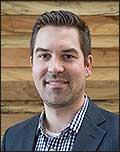Soldiers from Fort Campbell, Kentucky, are known for their bravery, ingenuity and adaptability, but all those qualities take them only so far if they don’t have the equipment they need, fast.
In the Army, it can take years to design, prototype and produce a device for a specific task. That length of time is cut to hours with 3D printers, laser cutters, injection molding machines and other makerspace gear available at the Wond’ry.
Members of the Bravo Company 21st Engineer Battalion visited Vanderbilt’s campus Thursday for a daylong lesson on how to use that gear. They prototyped explosive ordinance housings with Director of Making Kevin Galloway and, later this month, will take the housings back to the Army base to test them.

“The soldiers at Fort Campbell are really interested in innovation, and we have rapid fabrication tools to improve their sustainability and operational readiness,” said Galloway, research assistant professor of mechanical engineering and director of Design as an Immersive Vanderbilt Experience. “We want to come up with solutions that soldiers can use in the field and make them more prepared for the scenarios that they encounter. From an educational point of view, working with soldiers can empower students to take charge and explore ideas and feel confident to try different things.”
Capt. Aimee J. Valles, the company’s commander, said makerspace equipment not only allows soldiers to design their own solutions to tasks, but it also saves time and money. Soldiers can fabricate their own, one-use parts they otherwise would have to order through the Army’s supply chain.
Valles said the colonel overseeing her battalion recognized the potential in a match between Army engineers and the Wond’ry and started the collaborative process.
“This absolutely revolutionizes the way we do things,” she said. “Something like 3D printing or laser cutting is going to reduce that time and give us the ability to use parts or devices in our training or on the battlefield faster.”
Students in Vanderbilt’s Army ROTC will join the effort when they return to classes later this month, said Lieutenant Colonel Dustin Mitchell, professor of military science, who assisted with Thursday’s training.